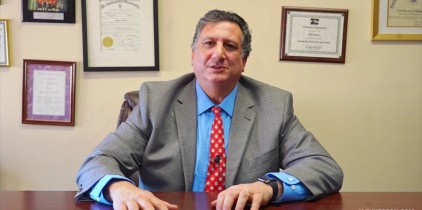The courts have a long history of involvement with issues related to parental rights and obligations. With rapidly changing societal norms and the ease of paternity testing, there has been a great deal of confusion about the definition of a “legal parent” and even what constitutes a “family”.
In Massachusetts there was a very controversial case (Paternity of Cheryl,  434mass.23.32746n.e.2nd 488, 2001) involving paternity. The Mass. Supreme Judicial Court was asked to review a case in which a man signed an acknowledgment of paternity and did not take advantage of paternity testing and later discovered that he was not the biological father. Should he be treated as the father and be responsible child support? The Court found in this case that family stability outweighed the non-biological father’s rights. This, in effect, meant that the non-biological father was determined to be the legal father and must continue to provide child support.
434mass.23.32746n.e.2nd 488, 2001) involving paternity. The Mass. Supreme Judicial Court was asked to review a case in which a man signed an acknowledgment of paternity and did not take advantage of paternity testing and later discovered that he was not the biological father. Should he be treated as the father and be responsible child support? The Court found in this case that family stability outweighed the non-biological father’s rights. This, in effect, meant that the non-biological father was determined to be the legal father and must continue to provide child support.
New issues related to this case are coming to the fore. I have recently been involved in two cases dealing with variants of issues related to this case. In one case, the biological father didn’t know that he was the father or even that the mother was pregnant until there was a court action several years later. Another man had signed a paternity acknowledgment making him the legal father. The juvenile court in this case found that biological father didn’t have any standing in determining issues related to custody, even though he was in fact the biological father.
In another of my cases, a man who had signed his name as the father on a birth certificate (hence the “legal father”) took a paternity test when the child was three years old. He then discovered that he was not the biological father and a number of court actions followed. He filed an action for divorce and, in a separate paternity action, filed a cross-complaint against the biological father who had taken a paternity test. The legal father is seeking to recover past child support payments spent caring for his non-biological child. This matter is under advisement in the trial court and ruling is likely to be appealed.
What’s the definition of a “family”? In Massachusetts the legalization of gay marriage (Goodridge v Dept of Public Health) has raised a lot of questions in divorce cases about the rights of gay and lesbian parents. Do both parents have equal standing? Should the biological parent automatically get custody? If a child is not adopted by a non-biological parent, the answer so far that the biological parent would get custody. Unless there’s an agreement, the general rule appears to be that the non-biological parent would have no standing, even if he/she were the primary care taker of the child. This raises an important issue: should custody be granted on the basis of biology versus what may be in the best interests of the child?
Would anyone seriously argue that a sperm donor father who has never been involved in his child’s life have more legal rights than a lesbian mother who had been the primary care giver, but hadn’t adopt the child? On the other hand, do we want to have Angelina or Madonna-type of situations where someone with more resources than the biological parents, but no connection with a child, can seek custody?
The definition of “family” is complex and evolving. I recently had a two week trial with several expert witnesses, including: DCF staff, guardian-ad-litems (GAL) and others. The parents of a child in question acknowledged that they were unfit to raise the child. The mother has capacity issues and the father had mental health issues. DCF, the child’s counsel, the parents and the GAL recommended custody to the child’s grandmother. My clients, also seeking custody, were the former foster care providers who raised the child from birth to seventeen years of age. At seventeen months the child had been returned to the mother who was subsequently found not able to raise the child. The child was then placed with the grandmother who was seeking to adopt the child.
The position taken by DCF was that family should always take precedence and that as long as the grandmother was able to pass a home study test, the grandmother should have custody. The DCF policy was that unless the situation with a biological family was unsafe, it is in a child’s best interest to be with family and that non-biological family should not have standing.
DCF and the others making the case for custody with the grandmother stated that the foster care providers had no standing and that they understood the risk that the child might be removed from their home. The foster care providers had retained me to file for guardianship. The court allowed us to be a party and subsequently determined that the foster care providers would offer the child a better family situation, despite having no biological standing.
As families take different shapes and more complex forms, laws that address paternity and custody issues must respond to these societal changes. As the courts begin to look at what constitutes a “family” in the 21st century and what is in the best interest of children, non-traditional parents are slowly beginning to be heard.
Should the biological parent automatically get custody? There is a real risk that if the child is not adopted, that the non-biological parent will have severely limited legal rights.







